Related Research Articles
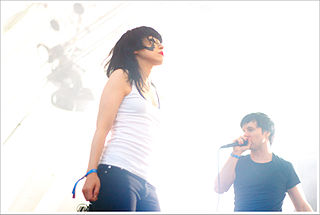
Atari Teenage Riot is a German band formed in Berlin in 1992. The name is taken from a Portuguese Joe song entitled "Teenage Riot" from the album Teen-age Riot, with the word 'Atari' added as an Atari ST computer was used to create compositions. Highly political, they fuse left-wing, anarchist, anti-fascist views with punk vocals and a techno sound called digital hardcore, which is a term band member Alec Empire used as the name of his record label.

Hanin Elias is a Syrian German industrial/techno artist. She was a member of Atari Teenage Riot and is now a solo artist.
Digital hardcore is a fusion genre that combines hardcore punk with electronic music genres such as breakbeat, techno, and drum and bass while also drawing on heavy metal and noise music. It typically features fast tempos and aggressive sound samples. The style was pioneered by Alec Empire of the German band Atari Teenage Riot during the early 1990s, and often has sociological or far-left lyrical themes.

Alec Empire is a German experimental electronic musician who is best known as a founding member of the band Atari Teenage Riot, as well as a prolific and distinguished solo artist, producer and DJ. He has released many albums, EPs and singles, some under aliases, and remixed over seventy tracks for various artists including Björk. He was also the driving force behind the creation of the digital hardcore genre, and founded the record labels Digital Hardcore Recordings and Eat Your Heart Out Records.

Nic Endo is a Japanese-German-American noise musician who plays with the German digital hardcore group Atari Teenage Riot. The daughter of a Japanese mother and a German father, Endo was born in Wichita Falls, Texas, US.
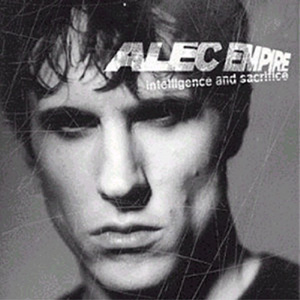
Intelligence and Sacrifice is a 2001 album by German recording artist Alec Empire. While by no means his first solo album, it was his first full album since the demise of his former band Atari Teenage Riot, and he regarded it as a new beginning, stating that it "feels like this is my first real album". This recording consists of two CDs, each with a significantly different sound. CD 1 is somewhat consistent with the ATR formula while the second disc is entirely electronic with negligible use of vocals.

Burn, Berlin, Burn! is a compilation album released by Atari Teenage Riot in 1997. Initially released in the United States by the Beastie Boys' record label Grand Royal, the album is a collection of tracks from their first two albums Delete Yourself! and The Future of War. After Grand Royal Records went defunct, the album was later remastered and re-released on Digital Hardcore Recordings.

60 Second Wipe Out is the third studio album by Atari Teenage Riot. It was originally released through Digital Hardcore Recordings in 1999. It peaked at number 17 on the UK Independent Albums Chart, as well as number 32 on the Billboard Heatseekers Albums chart.
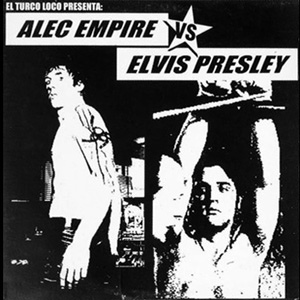
Alec Empire vs. Elvis Presley is a recording by Alec Empire which incorporates Elvis Presley samples.

Atari Teenage Riot: 1992–2000 is a greatest hits compilation by the seminal digital hardcore band Atari Teenage Riot. The album was released on band member Alec Empire's Digital Hardcore Recordings on 3 July 2006 and features 18 tracks from the band's back catalogue.

The Future of War is the second studio album by Atari Teenage Riot.
The following is a list of known recordings by or involving Alec Empire, excluding his work with Atari Teenage Riot.
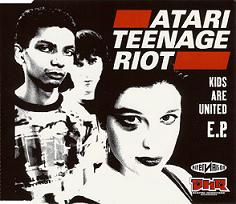
"Kids Are United!" is a song by the German digital hardcore group Atari Teenage Riot, initially released as a single in 1993 on 12", 7", and CD formats. The track is largely based around a sample from the Sham 69 song "If the Kids Are United".

Live In Stuttgart is a rare live album by Atari Teenage Riot. Initially released on cassette, the album predates the infamous Live at Brixton Academy noise-fest, and features a bizarre blend of live instrumentation and spoken word pieces from various songs.
Too Dead For Me EP is an EP by Atari Teenage Riot released in 1999 on CD and as a 12" vinyl record to promote their album 60 Second Wipe Out, where the title track originated.

Rage E.P. is a release by Atari Teenage Riot. Although the title of the release is "Rage E.P.", it only contains versions of the song "Rage", so it is similar to a single. The CD versions are enhanced CDs which contain the single file of the music video "Too Dead For Me" in MPEG format. A 12" vinyl edition also exists.
Revolution Action E.P. is an extended play by the German digital hardcore group Atari Teenage Riot, released in 1999 on 12" vinyl and CD formats to promote the album 60 Second Wipe Out, where the title track originates. Two music videos were produced for the track, one of which was actually banned by MTV. "Revolution Action" was also the name of a tour and live various artist release titled Revolution Action Japan Tour 1999 EP.
"Speed/Midijunkies" or Midijunkies/Speed is a single by Atari Teenage Riot, initially released in April 1995 to promote their debut full-length Delete Yourself!. The song "Speed" samples Powermad's "Slaughterhouse" and was later used for the 2006 movie The Fast and the Furious: Tokyo Drift.
Live in Philadelphia Dec. 1997 is a live album by Atari Teenage Riot. The CD version was distributed with certain pressings of 60 Second Wipeout. The album was recorded at the historic Trocadero Theatre.
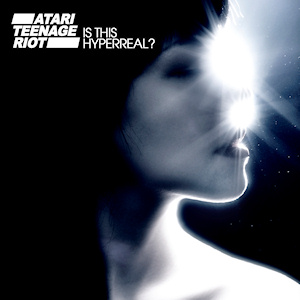
Is This Hyperreal? is the fourth studio album from Atari Teenage Riot, and their first album since they effectively disbanded in 2000. It is the first ATR album featuring CX KiDTRONiK, and the first album without former vocalists Hanin Elias and the late Carl Crack.
References
- ↑ N/A. "Atari Teenage Riot's 'Destroy 2000 Years of Culture' - Discover the Sample Source". whosampled.com. whosampled.com. Retrieved 2016-11-19.